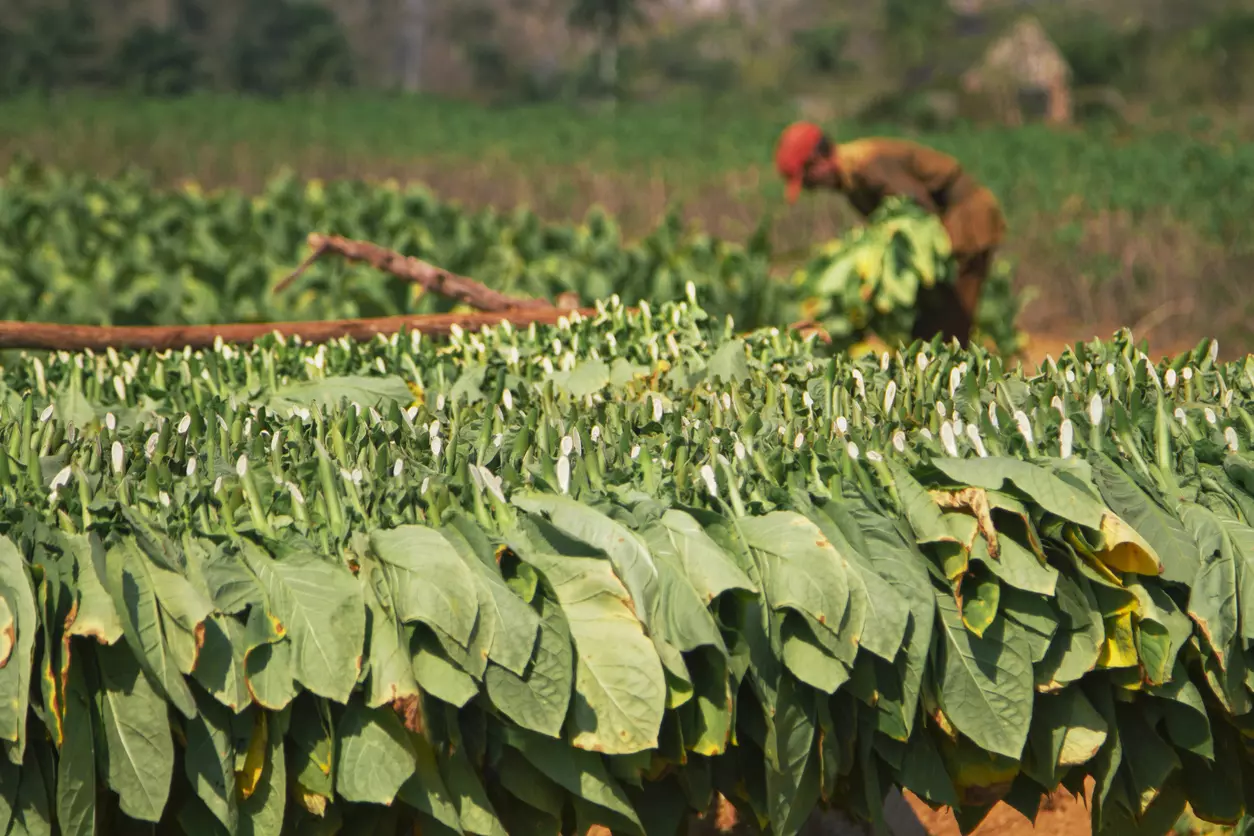
Easing tobacco licensing rules risk public health, warn experts
Extending the validity of tobacco grower registrations and barn licenses from one to three years has ignited fierce criticism from public health advocates

The recent Tobacco Board (Amendment) Rules, 2025, extending the validity of tobacco grower registrations and barn licenses from one to three years, has ignited fierce criticism from public health advocates, who argue that will increase the burden of cancer cases. Moreover, this move also undermines India's obligations under the WHO Framework Convention on Tobacco Control (FCTC).
Notified on April 22, 2025, the amendment to the Tobacco Board Rules, 1976, is seen as promoting long-term tobacco cultivation, contradicting India's commitment to reduce tobacco production.
As per the Tobacco Board Act, 1975 and Rules notified thereunder, every grower intending to take up cultivation of Virginia tobacco has to obtain certificate of registration as a grower and a license for operation of a barn. The Tobacco Board undertakes the registration and licensing for the barn operations on an annual basis. The recent amendment has increased the periodicity from one to three years.
A warning
Responding to the amendment, S Cyril Alexander, state convenor of the Tamil Nadu People’s Forum for Tobacco Control, alleged that the amendment reflects the influence of the tobacco industry lobby, which has also stalled the Cigarettes and Other Tobacco Products Act (COTPA) Amendment Bill for over a decade.
"The COTPA Bill, intended to increase fines and enforce stricter penalties for tobacco control violations, reduce smoking zones, allot designated smoking areas and others, has languished since its introduction in 2020, with no progress in Parliament as of 2021, reportedly due to pressure from tobacco producers. The amendment couldn't be done for the last 10 years. With this relaxation, it will lead to an increase in the tobacco farming. The production of tobacco will become a sustainable cropping, and encourage consumption," he said.
Also read: GST on cigarettes, tobacco, fizzy drinks may go up to 35%
Alexander warned that the Tobacco Board amendment could increase tobacco availability, risking higher consumption, particularly among youth, and clashing with the National Tobacco Control Programme (NTCP) goals. He urged authorities to reconsider the amendment, align policies with FCTC objectives, and expedite the COTPA Bill to strengthen tobacco control measures while supporting farmers’ transition to sustainable crops.
India is 2nd largest producer and 4th largest exporter of unmanufactured tobacco in the world (in value terms during 2023) and generates significant revenue for the Indian exchequer. During the 2024-25 financial year, tobacco exports contributed Rs 16,728 crores to the Indian exchequer.
Growing demand
While farmers' groups argue that tobacco production is demand-driven and provided a vital source of income, public health experts warn that this move could exacerbate the growing burden of cancer cases.
Also read: Spending on paan, tobacco, intoxicants increased in last one decade: Govt survey
AP Ravindran from the Farmers’ Federation said that tobacco production is proportional to the demand and this is the main source of their income.
“If the demand continues, the production cannot be reduced. Agriculture is dependent on the business and if tobacco is in demand, it has to be produced. There should be other alternatives for farmers," Ravindran added.
Alternatives for farmers
Concerned about the rising number of cancer cases, which is as a major public health challenge, public health expert Dr K Kolandaisamy said that easing licensing would encourage tobacco production and overall, add to the public health burden.
"While the farmers would benefit from this, it is promotion of tobacco, which is against the healthcare policies. We need to reduce the source of tobacco to handle the burden of diseases that are responsible for the same, cancer particularly. The government should instead focus on promoting equally beneficial crops for the farmers. To encourage the farmers to choose other crops over tobacco, they should be incentivised once they stop cultivating tobacco. There should be multiple strategies to tackle that," said Kolandaisamy.
Also read: Karnataka areca growers fume against tobacco lobby after cancer warning
A Lancet report titled ‘Unsuccessful ban on gutkha and need for tobacco control in India’, stated that around 21.4 per cent of adults in India use smokeless tobacco, whereas 10.7 per cent use smoked tobacco products. Additionally, India has some of the lowest tobacco quit rates, with only 20 per cent of men quitting the use of tobacco.
Although marketing and direct sales of tobacco products to children are banned, these restrictions are not properly enforced. The report highlighted the pressing issue of continued tobacco use, affecting nearly 1.14 billion individuals globally, with a substantial number of tobacco users residing in China and India.
Balanced approach
Health experts highlighted that there is a need for a balanced approach considering both the economic interests of farmers and the public health implications of tobacco production by promoting alternative crops and supporting farmers to transition from tobacco to other products.
The director of public health and preventive medicine Dr T S Selvavinayagam told The Federal that such a move is challenging to public health.
"They see it as a commercial crop and agricultural income. It's time to promote alternative lucrative crops instead of tobacco, as that alone will help farmers to balance both public health and agricultural income."

